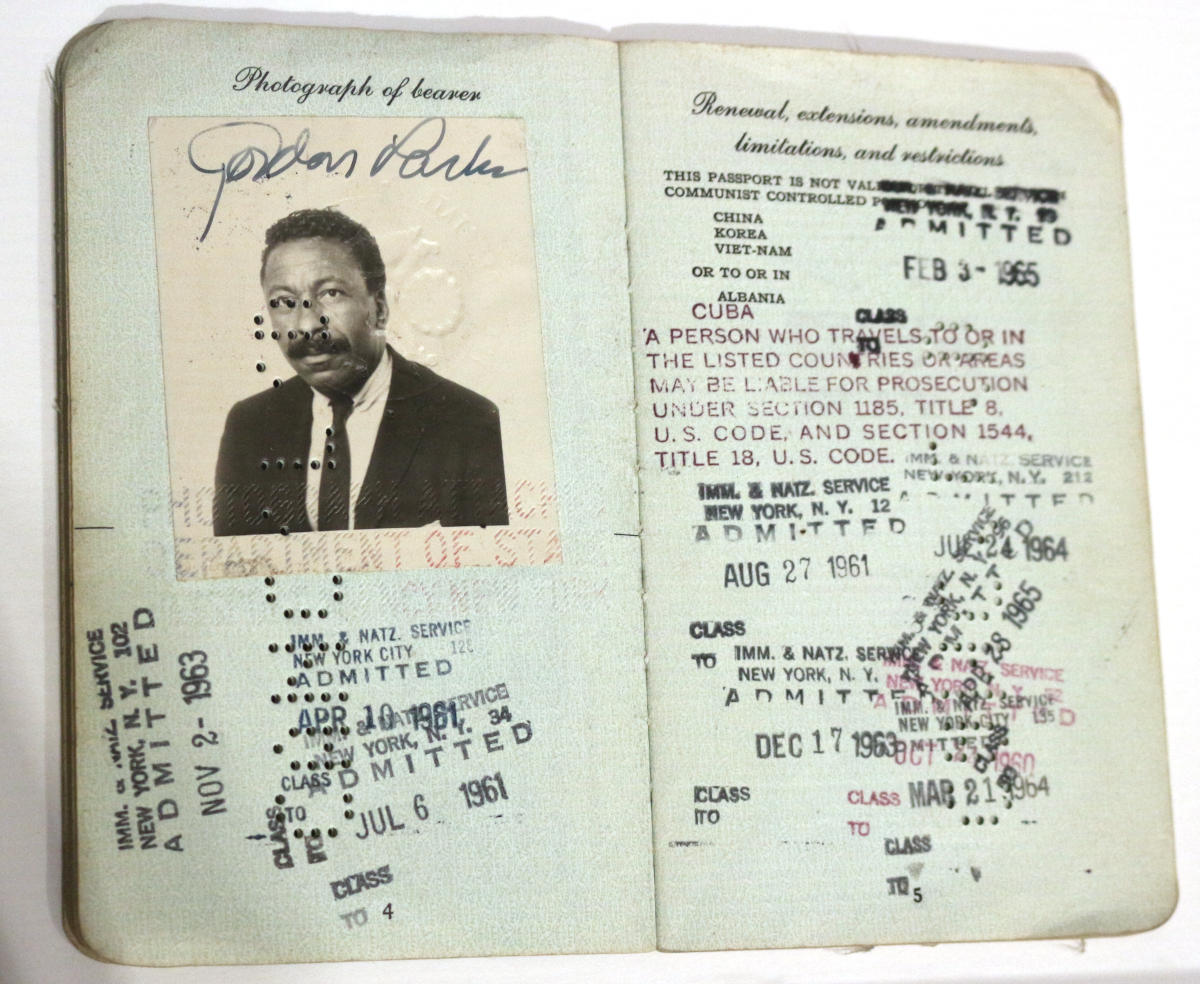Light tumbling (top photo)
You know how sometimes, you get that super-aware feeling that you’re thinking in big life-altering terms? I’ve made a few resolutions in that state, that I felt strangely sure I would stick to – one, very shortly after I moved out (at 12) has stuck with me especially strongly, and continues to haunt and energize me to this day.
“I want to understand as much as I possibly can about the reality of the world, without quite going crazy.”
That the quest for knowledge and truth came with this specific risk was already very clear to my young mind, thanks to a rich pantheon of early heroes (who also remain highly energizing, many decades later).

Two genuine individuals
What we (can) see on any given day always depends on the angle from which we have chosen to look – while my childhood was in many ways quite strange and painful, it also had some very stimulating features.
Thanks to my father’s obsession with high culture, I grew up living inside an abundantly stocked library and very active music room, filled with fine art-prints, from the never equalled discount bins down at Old Favourites. Our relationship was strained so early, that he never did manage to convey any of his truly extraordinary musical technique to me (I approach entirely by-ear) – but I cannot deny nor escape the imprint. To me – a man was always supposed to be a person who could play ten instruments, cast a mathematically accurate horoscope, carve a credible woodcut, and felt deep passion for words and art of every kind.
That I have broken my heart repeatedly over the years, hoping to win his approval, will surprise no one with a father. Indeed, there is something about our inability to connect which is strangely ancient, as a driver for creative mania. Definitely not the first, to attempt what I know in advance to be impossible – nor to carry on indefinitely, even while the goal recedes.
But he was not my only early influence (or indeed, frustration) ;o) I also happened to be raised in a commune filled with artist role-models, and built around psychological theories, many of which were useful, though much strange use was made of them, for interpersonal power-games (a sadly common problem, in outsider communities), This made me conscious at an unusually early age of the need to harness my own energies – to direct my fire and use it, lest it get too fierce and burn me up.
I’ve mentioned being crazy for Bertrand Russel, Einstein, Orwell, Shelly, Bradbury, Bucky Fuller and St Exupery as a youngster, but the guy who really put the zap on my head big-time was actually Francis Bacon – (the polymath contemporary of Shakespeare, not the painter – just to be clear).
I began with his essays, and soon started digging into both his accepted biography, and also the greater mythos – some of which credits him as not only the true author of all the work attributed to Shakespeare (and large sections of the King James Bible), but also the rightful heir to the throne of England itself! All of which is supposedly revealed by a wonderfully subtle bilateral cipher, embedded in the irregular typography of early folio editions. (I spent many fun library-stack hours reviewing reproductions, seeking clues for this, myself).
But of course, there are legions who continue to believe that the amazing Nicola Tesla was actually an ambassador from Venus! Even as an excitable youngster, I recognized the skew between that which is very clearly true, and that which might indeed be fun to add, if only we had some evidence!

Golden Composition
Like Tesla – the things that Bacon absolutely did accomplish are already impressive enough – to this day his essays and thinking are considered the beginning of the modern scientific method itself – self-skeptical, impartial, well-evidenced and based upon replicable research.
He even left home at 12, like me – (but in his case, to attend Cambridge!)
Bacon was the first great Western encyclopedist and library theorist. and as a lawyer and the very first QC (Queen’s council) ever, he suggested innumerable important contributions to legal and parliamentary reform (many of which were finally incorporated in the progressive “Napoleonic code” which continues to be widely influential across continental Europe).
That in his rich diplomatic career he was also involved in establishing both the Virginia and Newfoundland settlements in the early 1600s, ought not to have surprised me (the guy was BUSY, all bios are incomplete, and thus wildly various) – nor that Thomas Jefferson considered Bacon, Locke and Newton the three greatest men who ever lived – the essential founders of all the progress in science and moral philosophy which followed.
So here’s the thing – you might think that with output of such usefulness and energy – opening up multiple new fields of study and advancement with his wide-ranging curiosity and creative insight, he would have had a smooth ride.
Nope – not even close. The problem is obvious, really. When someone comes along and makes huge contributions (challenges and changes) to a specialty field – a whole lot of distinguished specialists of the old way always get upset, especially when their old theories are made to look foolish (even if unintentionally, entirely by method, not spite).
So a guy who made contributions to scholarship itself – intellection, ethics, research, law, diplomacy, political philosophy and practical governance, ended up making enemies, both trivial and serious, everywhere he went. Didn’t help that he also sat as a member of parliament, in particularly bitter and contentious times.

Homestead lost
In the end, he was charged with corruption – almost certainly a political frame-job (a technical fault in a context where that was normal, but no ‘spirit-of’ corruption – think Lula) carefully designed by his enemies to bar him from further office and wreck his longstanding access and influence. Financially ruined, he was even forced to sell his beloved family home in London to his most hated enemy (the man who most likely arranged for the charges), for a pittance. Only barely skated on jail-time (thankfully, even his enemies recognized that he’d do the world more good in a library somewhere, with a pen and paper).
To my idealistic teenage mind, the vast and complex puzzle of this rare genius fit together with a strange and perfect clarity.
Here was a human being who was completely and utterly curious about everything at once – so much so, that like the Yogi Gopi Krishna – it was almost impossible for him to emotionally believe that everyone else hadn’t instantly joined him in this new enlightened perspective – because as soon as he got there, it all felt so stunningly obvious.
Bacon strived to reach courageously and usefully, then laboured to share his ideas and discoveries, everywhere his keen interest turned. Always naive enough to believe others would be similarly thrilled – though his true sympathetic audience was actually centuries away.
For this he was not rewarded, but opposed and ultimately done-down.
Died of Pneumonia – in a way so typical of him as to be heartbreaking, Got caught-up in an experiment to try to preserve meat with fast-freezing (much needed, but a breakthrough too far, for him to achieve) – not only a seeking curiosity working for the good of humanity unto the very last, but a strange echo also of Monet’s ultimately ruinous dedication.

As above, so below – Bucky-ball at macro-scale
Buckminster Fuller’s moment of personal commitment was, like so much of his life, extraordinarily explicitly expressed and recorded (like me, he always saw himself as both the researcher and the experiment – but he took way better notes!). His first business went bankrupt – and many friends and family members (who believed in him, and had invested everything) were utterly ruined along with it – and just then, amidst this terrible dishonour and failure, his beloved young daughter suddenly died. The man was utterly destroyed.
He could not go on with his old thinking – his mind simply could not again see self-interest as meaningful, past that point of stark and full-scale clarity.
So he decided that he would do whatever he could, to find useful ideas which could make life better for others in practical ways, and then help people understand them as clearly as he could, with his work in design, geometry, systems theory and especially his popular writings and often life-changing lectures. Not politics (endless irrational emotive arguments) but efficient and scaleable design solutions to human needs. Improvements so good, that even politicians couldn’t screw them up!
“Critical Path” (superb and dazzlingly wide-ranging) and “Utopia or Oblivion” (easy and startlingly direct) are both genuine must-reads.*
Fuller was dedicated to realistic optimism to a very rare degree, even through the worst crises of the 20th century. Never calling for comforting self-deception or resorting to convenient violations of thermodynamics to flatter his preferred ideas – offering instead a constant output of realistic humane and empowering design, and work too, on rational distribution.
(Every advanced military in the world runs war-games, constantly – but Fuller organized “world-games” at many Universities way back in the 1960s – some of which still run – for students to simulate and refine cooperative global solutions – instead of conflict!)

Radiative interference
Of course, I am absolutely not a fancy polymath like either of those two great heroes. But I can still relate deeply to their consuming curiosity about the world and love for humanity, and their struggle to see further than is comfortable for most – and then communicate the excitement of that strange vista. I also share their unshakable sense that self-interest alone – or just being a good high-functioning ‘member of the team’ (ant in the hive) – is a vastly insufficient reason to proceed.
Anyhow, I don’t seem to have the right kind of brain for scheming and deception, nor even self-interested flattery and trickery. I start from underdog and empathy, share my enthusiasms where I genuinely feel them – and my righteous humane fury also (because to me, joy in life and duty are always thus bound). No matter how expedient, I just can’t make myself say wrong is right. As Groucho brilliantly remarked, “Any club that would have me, I wouldn’t want to join!”
I do, like Bacon, struggle very hard to be skeptical about my own framing bias – and some of you will have already seen me approach many subjects from angles which open me to blasphemy charges from some who consider themselves to be leftists and/or progressive rebels, without actually ever meaning duty to others or great principle by that, (nor much of anything beyond immature and self-centred complaint).
I seem to plot along an also ancient but far more pathetic line than Bacon and Bucky – I’m the guy who won’t shut-up about the rot in the palace, even when the rulers are scary – but also won’t pretend the rebels are perfect, simply for opposing the currently powerful.
The intellectual revolutionary (in older terms, silly heretical loudmouth) who helps in a very tiny way to carry the day, only to be discredited or assassinated by their own side – who are inevitably outraged by the shock of equal principle and skepticism applied to them!
Which to me, is actually kind of a funny historical line to be a part of.
An entirely dishonourable calling – and all the more worthwhile for it.
The fool in Tarot doesn’t watch the cliff-edge, or walk with measured gait – he’s skipping along taking-in the long view with a smile – accepting that the long view itself is as essential as any other point of balance, and knowing it quite unavailable to those ruled by caution.
If you enjoy what I do – how I enthuse and wander curious, and also try to call ALL the bullies out, on behalf of ALL the underdogs (where so many prefer faction-safe flattery) you can now contribute directly to the Large Ess Small Press project – help speed new books, articles, essays, poems and photography on their way, via Patreon – here – or you can click the new widget-box on the sidebar of any Large Ess post.
Along with delivering a real boost to the project – you will also have my sincere thanks and promise – working for wiser kinder all-of-us, always. Compassion, wisdom, knowledge – in that order – the essential humane recipe which I never did learn at home, and yet have always considered greatest and most worthwhile of all forms of knowledge.
¯\_(ツ)_/¯
*Buy any copy you see of stuff BY (rather than about) Buckminster Fuller – you’ll want to give one away to all your smartest chums, before you’re even finished reading them yourself! (Avoid the recent “A Fuller view”, except as side-study, not his key material at all – mostly his impact on motivational coaches. I got far more genuine and wacky outsider Bucky insight from “The Mind’s Eye” (St Martin’s Press 1974) a tiny gem of a book written by his long time patent lawyer, Donald W Robertson).
Also – wildest Bacon biography ever – “The man who saw through time” Lorne Eiseley – who is always wonderful anyhow (“Star thrower” – WOW) but really outdoes himself with brilliant thought and empathy on this one. Eiseley insists Bacon was not only hundreds of years ahead of his time – but also still hundreds ahead of our time, too. (Much like Tesla). Must have been excruciating to have so few peers to talk to in their own time (for both) but also supreme pleasure when they could connect. (Give Bucky points, even way too smart for Earth, he never allowed himself to have that problem – and went to absolutely gorgeous extremes to communicate with everyone – reaching for every chance).









